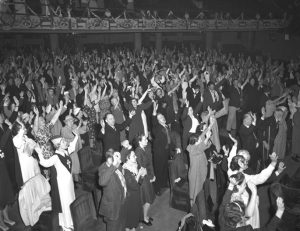


It is a brilliant pioneering assault upon the most important unaddressed problem in American historiography-how our society and very personalities were transformed by the rapid advance of the capitalist market in the earlier nineteenth century." -Charles Sellers, University of California, Berkeley "Johnson's book is indispensable for any understanding of the evangelical revival and related reform movements in New York's 'burned-over' district.


It is a brilliant pioneering assault upon the most important unaddressed problem in American historiography-how our society and very personalities were transformed by the rapid advance of the capitalist market in the earlier nineteenth century., "This is far more than a study of local history, and more even than a provocative interpretation of the social sources of religious revivalism. Both in substantive conclusions and as a model for future regional studies, A Shopkeeper's Millennium is one of the freshest and most exciting books I have read in the past few years., This is far more than a study of local history, and more even than a provocative interpretation of the social sources of religious revivalism. No less important, Professor Johnson has brilliantly fused the quantitative methods of the 'new social history' with a sparkling style and an imaginative reconstruction of social reality. Both in substantive conclusions and as a model for future regional studies, A Shopkeeper's Millennium is one of the freshest and most exciting books I have read in the past few years." - David Brion Davis, Yale University, Johnson's book is indispensable for any understanding of the evangelical revival and related reform movements in New York's 'burned-over' district. It is a brilliant pioneering assault upon the most important unaddressed problem in American historiography-how our society and very personalities were transformed by the rapid advance of the capitalist market in the earlier nineteenth century." - Charles Sellers, University of California, Berkeley "Johnson's book is indispensable for any understanding of the evangelical revival and related reform movements in New York's 'burned-over' district. "This is far more than a study of local history, and more even than a provocative interpretation of the social sources of religious revivalism.


 0 kommentar(er)
0 kommentar(er)
